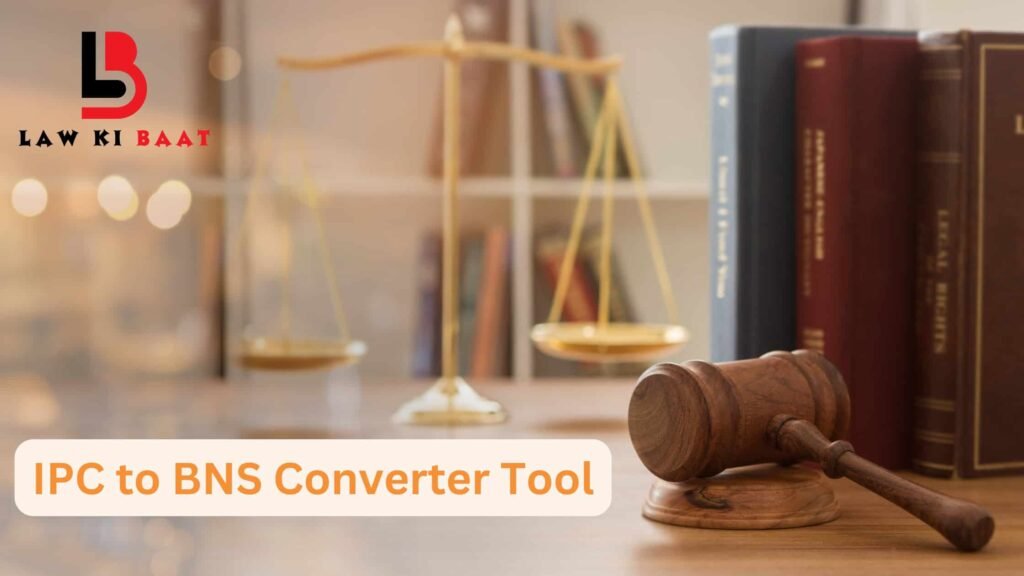IPC to BNS Converter Tool
Corresponding BNS Section
Remark
Understanding the IPC and BNS
Indian Penal Code (IPC): Established in 1860, the IPC is the primary criminal code for India, defining various criminal offenses and their respective punishments. Over the decades, the IPC has undergone numerous amendments to address the changing needs of society and legal principles.
Bharatiya Nyaya Sanhita (BNS): The BNS is a recent initiative aimed at updating and modernizing the Indian criminal justice system. Enacted as part of India’s legal reform efforts, the BNS seeks to replace and refine the IPC to better align with contemporary legal standards and societal needs. It emphasizes clarity, modernity, and justice, ensuring that the legal system remains relevant and effective.

Why Convert IPC to BNS?
The transition from IPC to BNS is more than just a change in terminology. It represents a significant shift in how criminal justice is approached in India. Here’s why converting IPC provisions to their BNS counterparts is important:
Updated Legal Framework: The BNS introduces updated provisions that reflect current societal values and legal principles, offering a more modern approach to criminal justice.
Simplified Legal Processes: The BNS aims to simplify legal language and procedures, making it easier for legal professionals and the public to understand and navigate the law.
Enhanced Justice Delivery: By aligning with contemporary standards, the BNS seeks to improve the efficiency and effectiveness of the criminal justice system.
Consistency and Coherence: Converting IPC provisions to BNS ensures consistency in legal interpretation and application, reducing ambiguity and enhancing legal clarity.
How Law Ki Baat’s IPC to BNS Tool Works
Benefits of Using Law Ki Baat’s IPC to BNS Tool
Our IPC to BNS conversion tool is designed to facilitate an effortless transition from the Indian Penal Code to the Bharatiya Nyaya Sanhita. Here’s how it works:
Input Section: Enter the relevant IPC section that you wish to convert. Our tool supports various IPC sections, covering a broad spectrum of criminal offenses and procedures.
Conversion Process: Once you input the IPC section, the tool processes the information and provides the corresponding BNS section. This conversion reflects the updated legal provisions and their implications.
Detailed Analysis: For each conversion, our tool offers a detailed analysis of the changes, including explanations of how the BNS provisions differ from the IPC sections. This helps users understand the legal nuances and implications of the transition.
Accessibility and User-Friendly Interface: Our tool is designed to be user-friendly, ensuring that even those with minimal legal knowledge can easily navigate and utilize it. The interface is intuitive, making the conversion process straightforward and efficient.
Accuracy: Our tool provides accurate and up-to-date conversions, ensuring that users receive reliable information.
Educational Resource: It serves as an educational resource for legal professionals, students, and individuals interested in understanding the changes in Indian criminal law.
Time-Saving: The tool saves time by quickly providing the equivalent BNS sections, reducing the need for manual research and cross-referencing.
Comprehensive Coverage: Our tool covers a wide range of IPC sections, making it a valuable resource for various legal contexts and scenarios.
Exploring Further with Law Ki Baat
At Law Ki Baat, we are dedicated to providing valuable legal insights and tools to enhance your understanding of Indian law. In addition to the conversion tool, we offer a range of resources, including:
Legal Blogs and Articles: Stay informed with our regularly updated blogs and articles covering various aspects of Indian law.
Case Studies and Analysis: Explore in-depth analyses of landmark cases and legal developments to gain a deeper understanding of the legal landscape.
Latest Posts
View All
Tax Litigation: Meaning, Process, and the Role of Tax Litigation Lawyers and Firms
Taxation is an unavoidable aspect of modern economic life. While tax laws are designed to regulate revenue collection fairly, disputes between taxpayers and tax authorities are common. These disputes often …
Latest Posts
View All
IPC Section 153A: Hate Speech & Communal Tension Explained (with BNS 196 Comparison)
In a country as diverse as India, where language, religion, and regional identities intertwine, maintaining communal harmony is crucial. To curb hate speech and prevent communal disharmony, the Indian Penal …




